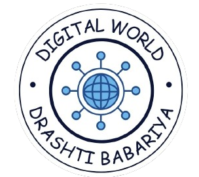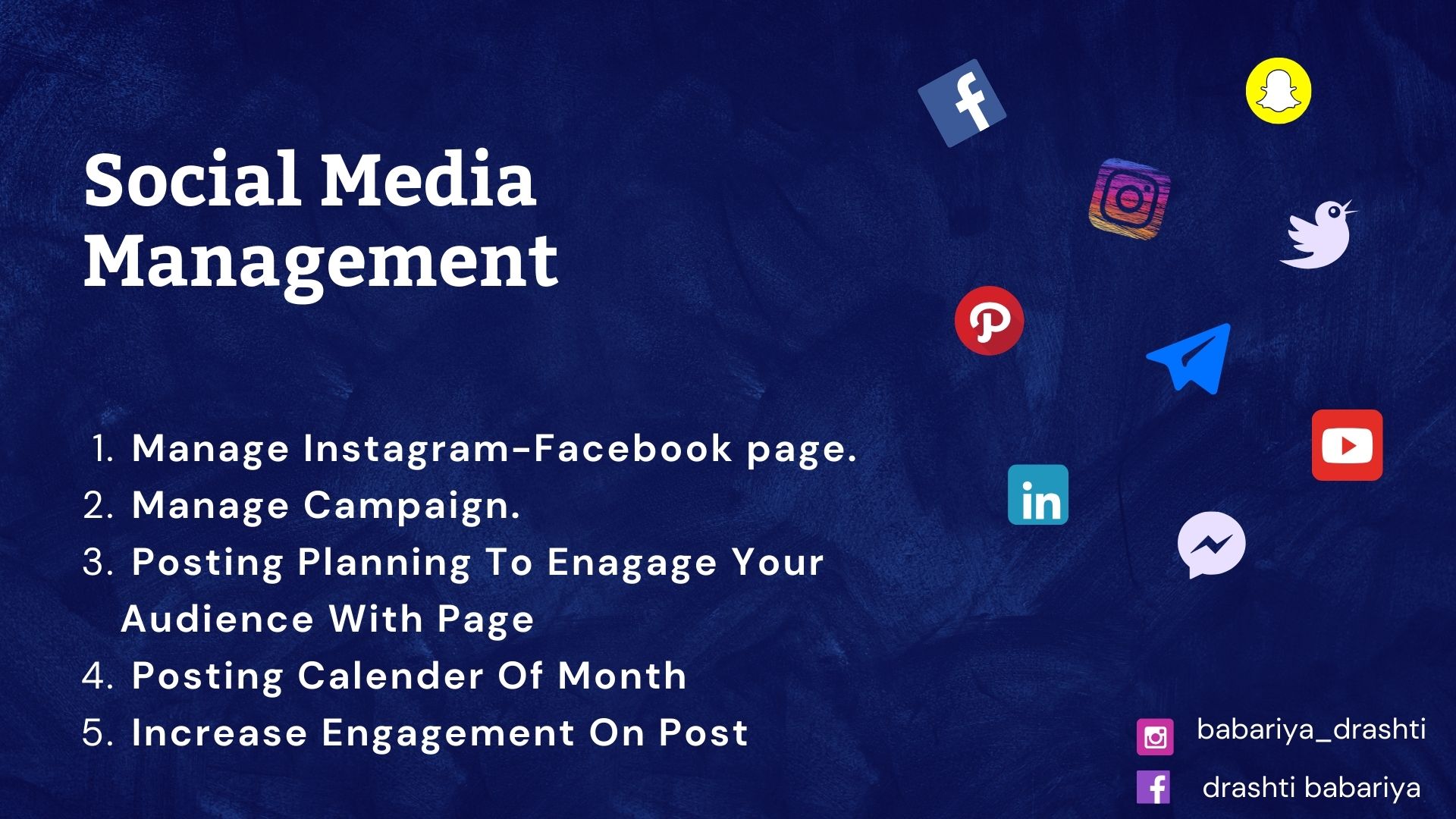Social Media Management
How Can We Help You ?
These tasks work together to build and maintain a strong presence on social media, helping achieve business objectives and connect with the target audience effectively.
Define Your Target Audience
Understand who your ideal customers are and tailor your social media content to resonate with them.
Use Hashtags Strategically
Research and use relevant hashtags to increase the discoverability of your posts and reach a wider audience interested in your niche.
Post Regularly
Stay active on social media by posting consistently, but avoid overposting, which can overwhelm your audience. Use scheduling tools to plan your content calendar in advance.
Utilize Paid Advertising
Consider investing in paid advertising on social media platforms to target specific demographics, increase brand visibility, and drive traffic to your website or landing pages.
Collaborate with Influencers
Partner with influencers or micro-influencers in your industry to leverage their audience and credibility to promote your brand authentically.
Stay Updated on Trends
Keep abreast of current trends and changes in social media algorithms to adapt your strategy accordingly and capitalize on new opportunities for brand exposure.
Benefits Of Social Media Marketing
Increased Brand Awareness: Social media platforms allow businesses to reach a wide audience and increase brand visibility. By regularly posting engaging content and interacting with followers, businesses can raise awareness of their brand and offerings.
Enhanced Brand Loyalty and Customer Engagement: Social media enables direct communication between businesses and their audience, fostering stronger relationships and building brand loyalty. By responding to comments, messages, and mentions, businesses can show authenticity and establish trust with their followers.
Targeted Advertising: Social media platforms offer advanced targeting options based on demographics, interests, behavior, and more. This allows businesses to reach their ideal audience with precision, ensuring that their marketing efforts are directed towards those most likely to convert.
Cost-Effectiveness: Compared to traditional advertising methods, social media marketing often offers better ROI due to its lower costs and highly targeted approach. Businesses can run ads on platforms like Facebook, Instagram, and LinkedIn with flexible budgeting options to suit their needs.
Increased Website Traffic and Lead Generation: Social media marketing can drive traffic to a business’s website through strategically placed links in posts, ads, and bio sections. By directing users to relevant landing pages, businesses can generate leads and conversions from social media.
Insightful Analytics: Social media platforms provide robust analytics tools that allow businesses to track the performance of their campaigns in real-time. Metrics such as engagement, reach, clicks, and conversions provide valuable insights for optimizing future marketing efforts.
Competitive Advantage: Maintaining an active presence on social media allows businesses to stay ahead of competitors and showcase their unique value proposition. By regularly sharing valuable content, updates, and promotions, businesses can differentiate themselves and attract customers.
Customer Feedback and Market Insights: Social media provides a platform for customers to share feedback, reviews, and opinions about a business’s products or services. Monitoring social media conversations allows businesses to gather valuable insights into customer preferences, pain points, and trends.
Enhanced Brand Authority and Thought Leadership: By sharing valuable content, expertise, and industry insights, businesses can position themselves as leaders in their field and establish authority within their niche. This can attract followers, customers, and opportunities for collaboration or partnerships.
Flexibility and Adaptability: Social media marketing allows businesses to quickly adapt to changes in the market, trends, or customer preferences. With the ability to test different strategies, content formats, and messaging, businesses can iterate and optimize their campaigns for better results over time.

